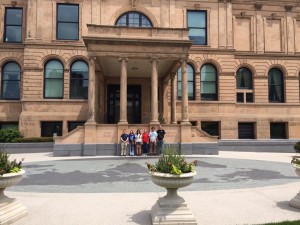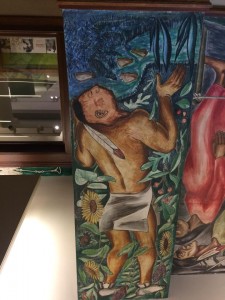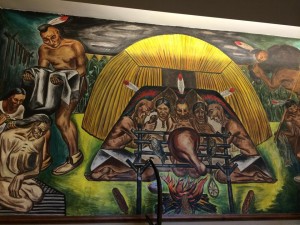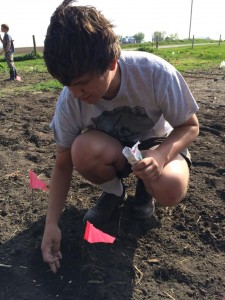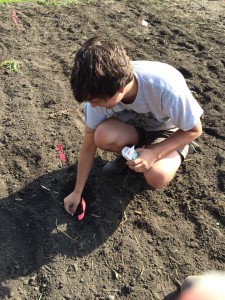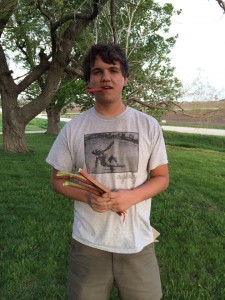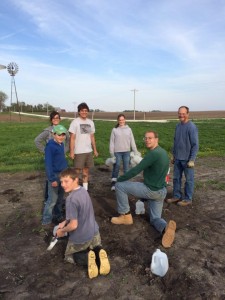Today we drove to Des Moines for a meeting with the Lieutenant Governor, who had set aside about ten minutes of her day to meet with us. I did not enjoy putting on my suit but realize that the costume is usually required for meeting important people. When we got there, she was extremely charming and personable as all good politicians should be and we had a short conversation about why we were all taking the farm class. I told her that I was interested in learning more about where my food comes from and she “commended” me for being interested in something that many people my age are not. However, had she known me better I’m sure I would not have received a commendation from such a high- level politician, given her recommendations as to where the important places to visit in Iowa were to learn about agriculture and her support of Annette Sweeney.
After visiting the Lt. Gov, we went to the Henry A. Wallace Country Life Center, which is both an organic farm and a farm-to-table restaurant. The cook prepared delicious vegan food for Cecily and me and then we all went outside to be given a tour of the farm. While there, we helped by thinning out rows of green beans that had been planted too close together, which I really enjoyed doing. The best part of this specific visit was talking to Mosa, who is in charge of the farm part of the Country Life Center. He graduated with a liberal arts degree in economics and philosophy from Simpson College but then decided not to work in that field and instead became an organic farmer. It encouraged me in that there are still many different options of different things I can do after I graduate from college next year.


